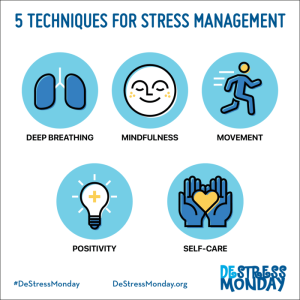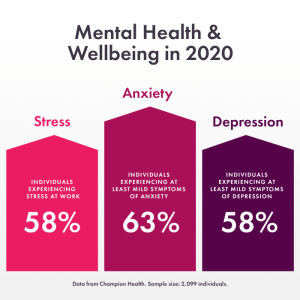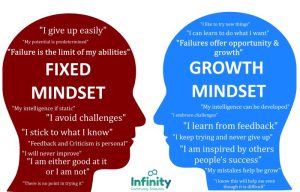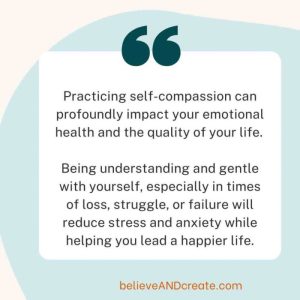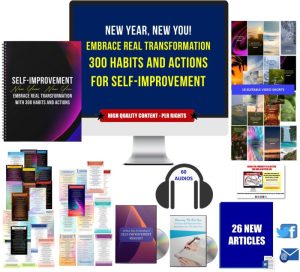Resilience in the Workplace Building Strength
Resilience in the workplace is more than just bouncing back from setbacks; it’s about cultivating a mindset and environment that fosters growth, adaptability, and well-being. This exploration delves into the multifaceted nature of workplace resilience, examining the challenges of stress, anxiety, and depression, and offering practical strategies for individuals and organizations to build a stronger, more supportive work environment. We will investigate the importance of self-care, mindfulness, and seeking professional help when needed, alongside fostering a culture of open communication and mental health advocacy.
From understanding the impact of sleep and stress management techniques to exploring the benefits of personal growth and skill development, this comprehensive guide offers actionable steps and resources to cultivate resilience within the workplace. We will consider the role of leadership in creating a supportive environment and the implementation of effective workplace mental health initiatives. The aim is to empower both employees and employers to navigate challenges effectively and thrive in a demanding professional landscape.
Personal Growth and Self-Care Strategies
Maintaining well-being is crucial for navigating the challenges of the workplace and fostering resilience. Neglecting self-care can lead to burnout, decreased productivity, and impaired decision-making. Prioritizing personal well-being, therefore, isn’t just beneficial—it’s essential for long-term success and overall health.Self-care practices are vital for maintaining both mental and physical well-being, enabling individuals to better manage stress and enhance their resilience.
Regular self-care acts as a preventative measure, bolstering an individual’s capacity to cope with workplace pressures and bounce back from setbacks. It’s an investment in one’s ability to perform effectively and maintain a positive outlook.
Importance of Self-Care Practices for Well-being, Resilience in the workplace
Consistent self-care significantly reduces stress levels and improves overall mental health. Activities that promote relaxation and rejuvenation help to counterbalance the demands of a demanding work environment. This, in turn, leads to increased energy levels, improved focus, and better emotional regulation, all of which are critical components of resilience. For example, a study published in the Journal of Occupational Health Psychology found a strong correlation between regular mindfulness practices and reduced stress among employees.
Examples of Self-Care Activities
Incorporating self-care into daily routines doesn’t require extensive time commitments; even small, consistent actions can make a significant difference.
- Mindfulness and Meditation: Even 5-10 minutes of daily meditation can help reduce stress and improve focus. This involves focusing on the present moment, observing thoughts and feelings without judgment.
- Physical Exercise: Regular physical activity releases endorphins, which have mood-boosting effects. A brisk walk during lunch, a gym session after work, or even a short yoga routine at home can be beneficial.
- Healthy Diet: Nourishing the body with healthy foods provides sustained energy and improves overall well-being. This includes consuming plenty of fruits, vegetables, and whole grains, and limiting processed foods and sugary drinks.
- Adequate Sleep: Aim for 7-8 hours of quality sleep per night. Sufficient sleep is essential for cognitive function, emotional regulation, and physical recovery.
- Social Connection: Spending time with loved ones and engaging in social activities can reduce feelings of isolation and boost mood. This could involve connecting with friends and family, joining a club, or participating in community events.
- Hobbies and Leisure Activities: Engaging in enjoyable activities helps to reduce stress and promote relaxation. This might include reading, listening to music, painting, or any other activity that brings joy and relaxation.
Benefits of Personal Growth and Development for Resilience
Investing in personal growth and development equips individuals with the skills and knowledge to navigate challenges more effectively. This can involve activities such as pursuing further education, attending workshops, or seeking mentorship. These activities build self-awareness, enhance problem-solving skills, and foster a growth mindset, which are all essential for resilience. For instance, developing strong communication skills allows individuals to express their needs and concerns more effectively, reducing workplace stress and conflict.
Personalized Self-Care Plan
A personalized self-care plan should be tailored to individual needs and preferences. It’s important to identify activities that are both enjoyable and effective in reducing stress and promoting well-being.
- Monday: 30-minute walk during lunch break, 15-minute meditation before bed.
- Tuesday: Prepare a healthy dinner, read a chapter of a book before sleep.
- Wednesday: Attend a yoga class, spend time connecting with a friend or family member.
- Thursday: Listen to relaxing music during commute, practice mindful breathing throughout the day.
- Friday: Engage in a hobby (e.g., painting, playing an instrument), enjoy a healthy and relaxing weekend meal.
- Weekend: Prioritize sleep, engage in outdoor activities, spend quality time with loved ones.
Ultimately, building resilience in the workplace is a continuous journey that requires a collective effort. By understanding the individual and organizational factors that contribute to resilience, implementing effective strategies for stress management and mental health support, and fostering a culture of open communication and mutual support, we can create work environments where individuals can not only survive but truly thrive.
This journey necessitates a commitment to prioritizing mental well-being, investing in employee development, and proactively addressing the challenges that impact workplace performance and overall happiness. The result is a more productive, engaged, and ultimately, more successful workforce.
Frequently Asked Questions: Resilience In The Workplace
What are some early warning signs of burnout in the workplace?
Early signs of burnout often include exhaustion, cynicism or detachment from work, and reduced professional efficacy. Physical symptoms like headaches, sleep disturbances, and digestive issues can also occur.
How can managers effectively support employees struggling with mental health challenges?
Managers should offer empathy and understanding, create a supportive environment, encourage help-seeking behaviors, and utilize available resources like EAPs. Regular check-ins and flexible work arrangements can also be beneficial.
What is the difference between resilience and coping mechanisms?
Resilience is the overall ability to bounce back from adversity. Coping mechanisms are specific strategies used to manage stress and challenges; they are tools that contribute to overall resilience.
Are there legal obligations for employers regarding employee mental health?
Legal obligations vary by location but generally include providing a safe and supportive work environment, accommodating reasonable requests related to mental health conditions (under disability laws), and maintaining employee confidentiality.
